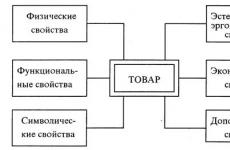A brief explanation of the images in Boris Godunov pdf. Characteristics of the reign of Boris Godudov
The image of Boris Godunov is characterized by the fact that he is a smart person and far from being evil. His mind is expressed in a clear understanding of state needs: in the ability to manage such a huge and then already heterogeneous state, like Russia. One of the smartest close associates of Boris, Basmanov, calls this "the spirit of the sovereign." His instruction to his son before his death breathes deep wisdom and experience: he advises him to choose a reliable adviser for himself, to conduct business as before, without introducing new orders, to try to win the favor of the people with favors at the beginning of his reign, and then gradually restore the former severity; advises to use the services of foreigners needed then by Russia, to observe church charters, to be silent and blameless.
In addition, he is aware of the great harm brought to the state by parochialism, tries, with particular exceptions in favor of one person, to accustom him to the thought of his complete destruction, advises his son to firmly endure the boyar grumbling about the appointment of the unborn Basmanov as the head of the troops. He is aware of the benefits of education and, being uneducated himself, looks with pleasure at his son, who is engaged in science.
Boris understands the fickleness of the people, and the futility of everything earthly. This is especially clearly expressed in his famous monologue; he does not deceive himself with the assurance of the gratitude of the people for all their good deeds, and realizes that
Living power is hateful for the mob.
But the image of Boris Godunov is marked not only by intelligence, but also by cunning. His speech to the boyars and the patriarch after his election breathes such thoughtfulness and cunning: pretending to be completely sincere and frank, he skillfully flatters the boyars with a reminder that he worked with them, but at the same time points out the enormous difference between his former and present position.
Morally, Boris is also an attractive person. He passionately loves his family, cares about the future fate of his son, mourns the grief of his daughter who lost her fiancé. He is a good family man and wants his son to be the same. He loves the people, takes care of them in troubled years, wants to see Russia educated and powerful.
From this characteristic, we can conclude that the image of Boris Godunov is as follows: he is a good, simple, smart person. But one passion creeps into his soul, making him cruel, changing his whole moral world; this passion is lust for power. Boris himself is aware of it, he is aware of the mistake he made in seeking and having achieved the royal throne; in a farewell conversation with Theodore before his death, he says:
I am a subject born and die
I should be subjects in darkness...
At the same time, he reveals a rare moral strength and love for his son, deciding to sacrifice the last minutes of his life to instruct him instead of repentance, which could calm him down and purify his soul. Some kind of horror emanates from his words:
I, I alone will answer to God ...
Involuntarily, compassion arises in the soul for a kind, intelligent person, worthy of a better fate, but carried away by a fatal passion.
In addition to fear for his son in the last minutes of his life, Boris all the time, starting from the moment he learned about the death of Dimitri, was tormented by remorse - which means that his soul was not spoiled. He decided on a crime under the influence of lust for power, but he paid for it with severe moral torments. How hard these torments were can be seen from the words of Boris:
And I'm glad to run away, but there's nowhere ... terrible!
In addition to remorse, he was tormented by a constant fear of retribution, loss of the kingdom and life itself, and fear not only for himself, but also for his family. This fear that his family will have to pay for what he - her loving father - did, is a truly tragic trait in Boris's character. Under her influence, he loses his temper, doubts the death of Tsarevich Dimitri, does not know what to do. The same pangs of conscience and fear change his character, force him to commit acts that are not characteristic of him: loving the people, caring for them, he, tormented by suspicions, resumes torture and executions; realizing the usefulness and power of science, guesses, becomes superstitious. This mental turmoil is God's punishment for the crime committed, in addition to the premature death of Boris and the death of his family. This mental anguish is so heavy that it makes one recognize the crime committed by Boris as redeemed. The same applies to him and Pushkin, who does not pronounce a harsh sentence on Boris, but, on the contrary, instills in the soul of the reader compassion for him in the scene before his death.
Such, in short, is the image of Boris Godunov. Pushkin was not in vain proud of his work. He succeeded in the character of Boris, as well as in the drama as a whole.
Boris Godunov is a prominent figure in Russian history. By origin, he is a boyar with an admixture of Tatar blood, and later - the Sovereign, Tsar and Grand Duke of All Russia. Alexander Sergeevich Pushkin created the drama "Boris Godunov" and designated it as a historical and political tragedy. The work presents the author's point of view on real events that took place at the turn of the 16th and 17th centuries.
One of the first listeners of the drama was Nicholas I, who liked it. Pushkin created his work while in exile. The headlines tell the reader that the prerequisite for this was the reading of the work of N.M. Karamzin "History of the Russian State". Most of the text, and the work on it lasted almost 6 years, is written in blank verse, and only a few scenes are described in prose. That fateful meeting with the emperor and the reading of excerpts led to the completion of Alexander Sergeevich's exile.
Characteristics of the hero

(Painting by Ilya Glazunov "Boris Godunov", 1967)
Throughout the story, the writer reveals to us the image of Boris Godunov, showing him from different angles: ruler, husband, father, man. In his character, advantages and disadvantages are closely intertwined. With all the wealth of mind and the desire to make the life of people in the country better, he fails to win the trust of his inner circle and ordinary people.
The accession to the throne was accompanied by the assassination of Tsarevich Dmitry. This, and also the fact that it was during the reign of Godunov that serfdom was strengthened, caused a quiet, and sometimes even obvious grumbling among the people. Every step forward in the form of tax breaks, good deeds and generous donations was presented as hypocritical. This is one of the reasons why the story ends with a tragic denouement at the end.

(Opera "Boris Godunov" at the Bolshoi Theatre, 1948)
A smart and not evil sovereign perfectly understands what his duty to the country is, what the boyars and ordinary people expect from him. But at that time Russia was huge, but, moreover, heterogeneous. Basmanov, the closest associate of the tsar, will call his understanding of duty "the spirit of the sovereign." The same scene tells the reader about the scene where the dying Godunov gives his last instructions to his son. He warns him against unreliable allies and hasty innovations, "flirting" with the common people. But he asks him to support the church charter, not to give rise to gossip, and also to adhere to the covenants of the ancestors.
At the same time, the king is not deceived by ostentatious human gratitude. Despite everything he did with good intentions, the thought sounds like a refrain: "Living power is hateful for the mob." And meanwhile nothing human is alien to him. The cunning can be traced in Godunov's speech to the patriarch and the boyars after being elected to the kingdom. On the one hand, he flatters by naming his comrades-in-arms, on the other hand, he does not forget to emphasize the difference between the sovereign and everyone else.
The human features of the hero are sympathetic. It clearly shows concern for the family, the fate of the heir, daughter. In dreams, he sees his country as powerful and educated.
The image of the hero in the work

(Scene from the 2nd act of the opera, Bolshoi Theatre, 1948)
Although the name of the drama is "Boris Godunov" and the tsar is the central figure in the story, the author does not assign him the main role. It rightfully belongs to the people, the driving force behind Russian history. An attempt to break through the will of people, to manipulate it for the sake of their own interests, ends for the Godunov family in destruction.
Pangs of conscience throughout the reign haunt the hero, gradually driving him crazy. Fear of exposure implicitly changes his character. A connoisseur of science and a person who loves the people is fond of superstition and gives the green light to the resumption of executions and torture. Pushkin presents the mental anguish of his hero as atonement for the crime committed. The scene before death evokes compassion in the reader.
Noting in the soul of Boris Godunov the main feature - “ambition”, Pushkin, following the romantic playwrights, did not limit himself to this one feature, he gave a comprehensive coverage of his soul, describing him as a person in general and as a ruler.
Boris, as a person, is a truly dramatic person, because good and evil simply and truthfully mixed up in his heart: he is not a one-sided pseudo-classical villain, and not romantic, with a beautiful pose inherent in him, he is just an unhappy person, whom only passion and chance pushed to a crime. He arouses pity in us because there is much good in him: from the day he committed the crime, his conscience torments him; this terrible mental struggle testifies to the incorruptibility of his nature, that he atones for his crime over the course of many years ... And this slow, painful lynching disarms anyone who would like to treat Godunov strictly as a criminal. In addition, everyone is captivated by his cordiality in relations with the people, with his family.
Boris Godunov
Boris as ruler
Indifferent, morally, but, in any case, captivating qualities of the soul of Boris Godunov were energy, courage, a bright mind. These are all virtues precious to a "ruler". And, indeed, as a ruler, he stands high: he reveals the knowledge of the human heart, the ability to manage people, an understanding of the true needs of the fatherland: he respects education, stands for rapprochement with Western culture, and strongly speaks out against “parochialism”. But all these good qualities of the “ruler” did not help him make Russia happy: neither his bright mind nor his worldly dexterity helped him, he does not have a single ally: both heaven and people, simple and noble, Russians and Poles, all and everyone is against him.
Boris as a criminal
All his administrative talents turn out to be as useless to him as to Shakespeare's Macbeth. Richly gifted by nature, with a broad outlook on life, power-hungry and ambitious, but without an admixture of mercenary egoism, loving his homeland from the bottom of his heart and wishing her well-being and prosperity, resolute and energetic, Boris reached the throne, guided by the principle: "the end justifies the means." The immorality of this principle destroys him.
Reasons for the fall of Boris
The people condemned in his person the criminal who killed Tsarevich Dmitry. The people did not let Boris buy themselves, and Godunov was unable to suppress his feelings of anger towards this “ungrateful mob”, he was unable to understand that there can be no place for a petty selfish feeling of resentment where fate pronounces its inexorable sentence. Under the influence of this feeling, he becomes suspicious, gloomy, even severe. Executions, torture, espionage - this is what Boris resorts to to strengthen his vacillating throne. From the former, broad and bright, understanding of his position as "the king - the servant of the people", he moves on to selfish aspirations to keep the throne for his son. In his dying speech, he gives his son advice on how to trick his subjects more cunningly.
Boris's children died as a redemptive sacrifice for their father's crimes, it was not the deception of the people and the boyars, not the impostor that ruined his work, the deception was successful only as an instrument of that formidable force with which Godunov did not get along. And the imposture of False Dmitry, according to Pushkin, was clear to everyone. Prisoner, to Otrepiev's question:
“Well, how do they judge me in your camp?”
answers:
“And they talk about your mercy,
What are you, they say, (be not angry!), And a thief,
And well done ... ".
Among the historical figures of the late XVI - early XVII century. special attention of writers is attracted by the bright personality of Boris Godunov and his tragic fate. In the 19th century A. S. Pushkin, and later A. K. Tolstoy, turned to the image of Godunov. The theme of Pushkin's tragedy is not the fate of Godunov, but the "trouble" of the Muscovite state. Its heroes are both Tsar Boris and the Pretender, so the play does not show the way Godunov came to power, and the action does not end with his death; the tragedy begins with the election of Boris to the kingdom, and ends with the reprisal of the boyars against the Godunov family and a scene that depicts the attitude of the people to the accession of the Pretender. Pushkin's task is to show the audience not the story of Godunov, but the primordial disunity of the tsar and the people, which is aggravated by the fact that the tsar-criminal is on the throne. Drawing Boris Godunov according to the legend and following Karamzin as the murderer of the prince, Pushkin does not hide his cunning and cruelty, but at the same time seeks to emphasize his positive features. His Boris is a naturally smart and kind person, endowed with a sensitive conscience; this is a father who passionately loves his family, a king who strives in the first years of his reign to do good to the people. In addition, this is a deeply unhappy person, suffering from the false position in which circumstances have placed him.
A. K. Tolstoy dedicated the events of the late 16th - early 17th centuries. his dramatic trilogy The Death of Ivan the Terrible, Tsar Fyodor Ioannovich and Tsar Boris (1863-1869). Boris Godunov is one of the leading characters in the first two plays, and the third play of the trilogy is entirely dedicated to him. We can say that this is the main character of the entire trilogy. Unlike Pushkin, Tolstoy's story of Boris begins long before his accession to the throne. We meet him already in the first drama written by Tolstoy. In the first scenes of the play The Death of Ivan the Terrible, the writer shows Boris's extraordinary mind and cunning. Godunov knows his capabilities well, his abilities as a ruler. He “sees the path that should be taken to lead the country in order to save it from destruction, but he understands perfectly well that his position is precarious. Thus, the cherished goal of Boris in the depiction of the writer is "serving the earth", but he understands that this goal can be achieved only on one condition: he needs complete power. Having retained the positive features of Godunov, indicated by the writers of the 17th century. and noted by Pushkin, A. "K. Tolstoy strengthened them, giving him one more - very important in the depiction of a political figure: his Boris is not just a lover of power, striving for power, not sorting out the paths, he is a patriot who understands the needs of his native land, he wants it benefits her and, realizing that no one but him can lead the country out of the impasse, he consciously fights for "power in the name of the happiness of the Motherland, as he understands it. He clearly sees that it is impossible to go to power in a direct way, but for a great goal ", he believes, all means are good. Skillfully and mercilessly he removes from his path people who prevent him from achieving his desired goal, and is convinced that he does this for the good of Russia. For the sake of this, he orders to remove the little prince, seeing in him not so much his rival in the struggle for the throne, as a stronghold of the boyar opposition, the cause of unrest and intrigue.
The personality of Boris Godunov was attractive to many historians, writers and poets. After all, his achievements were swift, and his death was tragic. He began his service as an ordinary nobleman, and then became the ruler of a huge power. The image of Godunov is truly tragic. Wishing good to the people, the tsar seeks to act far-sighted, but he is hated by people as an oppressor who criminally seized the throne.
Main features
The image of Boris Godunov in Pushkin's tragedy is revealed by the great Russian poet in a wide and versatile way. First of all, the main character attracts the mind, his responsiveness, the ability to sympathize. He sincerely sympathizes with his daughter, who lost her fiancé, calls her "a widow in brides." In addition, he is very well versed in politics, clearly understands how the boyars treat him. The image of Boris Godunov in Pushkin's tragedy is, first of all, the image of a wise man and a skillful politician. He gives valuable advice in his will to his son, and having betrothed his daughter to a Swedish prince, he thinks in advance about how to strengthen ties between Russia and European states.

Politics Godunov
In those difficult times, when Godunov seizes power in a criminal way, the country enters a period of severe trials. Huge natural disasters undermine its economy for several decades, and a long war ends their work. However, despite all these virtues, the people are not favorable to the king. He is a representative of a typical autocracy that took shape on the territory of Kievan Rus since the time of Ivan III.
Boris Godunov continues the course taken by Ivan VI - all state power was concentrated in the hands of the ruler. He also fights against the boyars, and in his struggle he tries to rely on the service nobility. In relation to the people, he also follows the path followed by his predecessors, believing that it can be restrained only by applying "vigilant severity."

Attitude towards peasants
The image of Boris Godunov in Pushkin's tragedy cannot be called completely positive, because he continues the policy of further enslavement of poor peasants, and even wants to completely abolish St. Thus, Godunov wants to finally secure power over the serfs for the landowners. And such a policy first contributes to the growth of distrust, and then hostility towards the king of the people.
Retribution for evil
However, the image of Boris Godunov in Pushkin's tragedy reveals to the reader not at all the ruler who ascended the throne according to the rules of legal inheritance. Boris Godunov became tsar as a result of a crime. Some writers of those times testify that in the 17th century Godunov was considered the murderer of the real prince, the son of Ivan VI. The historian Karamzin agrees with the same opinion.
He considers the tragedy of Boris Godunov as a natural punishment that befell him for his sins. In the analysis of the image of Boris Godunov in Pushkin's tragedy, one should mention the fact that the murder of the prince really brings mental suffering to the protagonist, but it is not the main reason for his tragic fate. After all, his death was caused primarily by social causes.
The boyars, the Cossacks, the gentry, but most importantly, the people themselves took the path of fighting the tsar. He turned away from the tsar precisely for the reason that he saw in him the real despot himself - this is how the image of Boris Godunov can be briefly described. The main cause of Godunov's death is the people. It is he who is the decisive force of the whole history. In him, he sees, first of all, a criminal, a child killer.

Where there is crime, there is evil
In order to describe the image of the impostor in the tragedy "Boris Godunov", Pushkin uses a special vocabulary. “Crime”, “evil” - it is precisely the words with such a root that constantly stand in tragedy next to the words “horror”, “terrible”. The poet seeks to emphasize that where a crime is committed, horror and despair always reign. When Boris Godunov is just assuming the throne, the boyars are surprised at how skillfully he plays the role of someone not involved in the crime that took place in Uglich. Subsequently, Shuisky will be convinced that even Godunov's refusal of the throne is nothing more than a pretense. Godunov's play becomes even more refined at the moment when he first finds himself in front of his entourage. In his words one can hear suffering, the cry of the soul.

It is precisely the suffering, tormented by constant remorse that the image of Boris Godunov in Pushkin's tragedy appears before us. The summary of the work is as follows. Boris Godunov renounces the throne, as Shuisky accuses him of being the one who killed the prince. However, Godunov is forced to submit to the will of the people, and becomes king. Further, the reader gets acquainted with the conversation between Pimen and Gregory, they say that a child-killer is now on the throne. Gregory escapes from the monastery to the capital, hoping to become the ruler.
Godunov's reign lasts for six years, but he understands that the people do not like him. Finally, news of the impostor arrives. An army appears on the Lithuanian border. At first, the impostor wins, but then Godunov. Shortly thereafter, Godunov dies. Basmanov takes over the leadership of the army. He makes a proposal that the rightful Dmitry become king. The Godunov family is cursed. One of the boyars, Mosalsky, reports that the entire Godunov family was poisoned. The boyar also addresses the people to greet the tsar. But the people remain silent.






